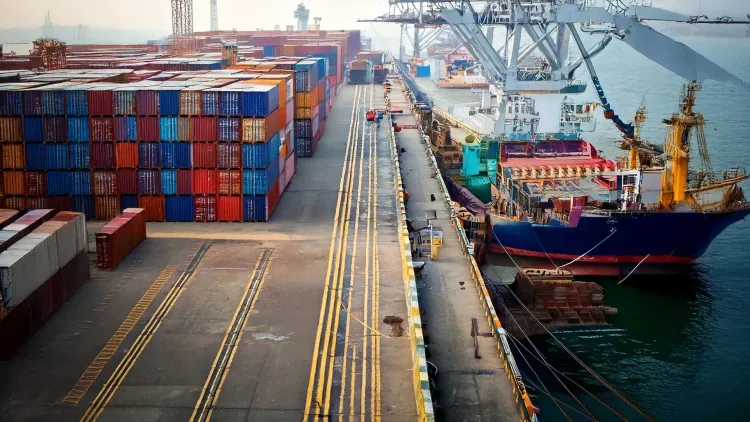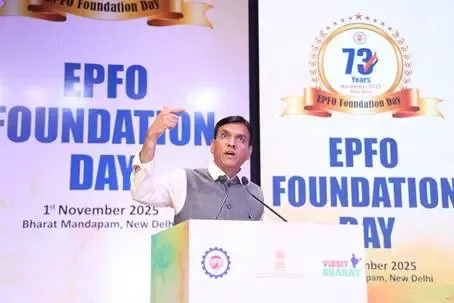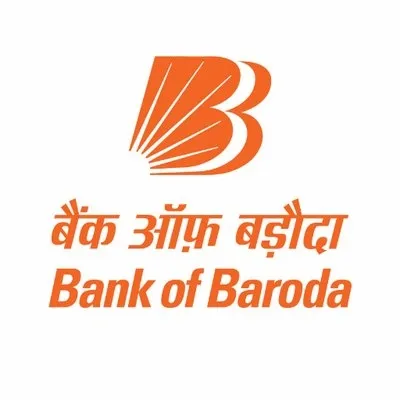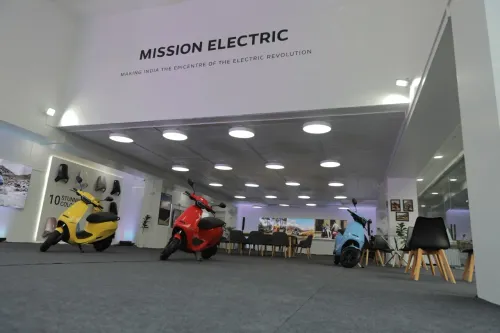Is India Set to Achieve $1 Trillion in Exports by FY26?

Synopsis
Key Takeaways
- India's exports are expected to reach $1 trillion by FY26.
- Merchandise exports are projected to grow by 12%.
- Services exports could increase by nearly 20%.
- Strategic partnerships and quality infrastructure are vital.
- SMEs need support to compete globally.
New Delhi, May 27 (NationPress) The Federation of Indian Export Organisations (FIEO) announced on Tuesday that India is anticipated to reach an export milestone of $1 trillion by the conclusion of the current fiscal year (FY26).
This projection comprises merchandise exports ranging from $525-535 billion — reflecting an approximate growth of 12 percent from the previous fiscal year — and services exports estimated between $465-475 billion, indicating an impressive growth of nearly 20 percent.
In the fiscal year 2024–25, India's export sector achieved a remarkable high, with total exports soaring to a record $824.9 billion, which is a 6.01 percent increase compared to the $778.1 billion recorded the year before.
Services exports experienced a notable surge of 13.6 percent to reach $387.5 billion in FY25, fueled by robust performances in IT, business, financial, and travel-related services.
Merchandise exports reached $437.4 billion, with non-petroleum goods exports achieving a historic high of $374.1 billion, up 6 percent from the prior year.
S.C. Ralhan, President of FIEO, emphasized the importance of implementing strategies to sustain growth in both goods and services exports.
“Expanding into emerging markets and reinforcing trade relations with current partners can minimize risks from over-dependence on certain regions. Additionally, shifting focus from raw materials to value-added products can enhance export revenues and lessen vulnerability to price volatility in global commodity markets,” FIEO advised.
Negotiating and executing Free Trade Agreements (FTAs) with significant partners can ease market access and diminish trade barriers, while investing in quality infrastructure, lowering logistics costs, and ensuring adherence to international standards will bolster the competitiveness of Indian exports.
FIEO also pointed out that enabling SMEs with access to financing and market insights will empower them to engage more effectively in international trade.
The global trade scenario in 2025 is increasingly marked by a resurgence of protectionist measures, representing a stark departure from the liberalization trends of previous decades.
This protectionism is apparent through raised tariffs, non-tariff barriers (NTBs), and strategic trade actions, influencing global trade and economic stability.
Indian exporters must ensure comprehensive supply chain traceability — a feature currently absent in many traditional sectors such as textiles, leather, and electronics.
“We urge the government to establish sector-specific task forces to analyze DPP requirements, create compliance roadmaps, and develop a national framework or digital infrastructure that can aid exporters in efficiently generating DPPs. The government should also contemplate providing support or grants to MSMEs to adopt traceability and product lifecycle management systems,” stated FIEO.









